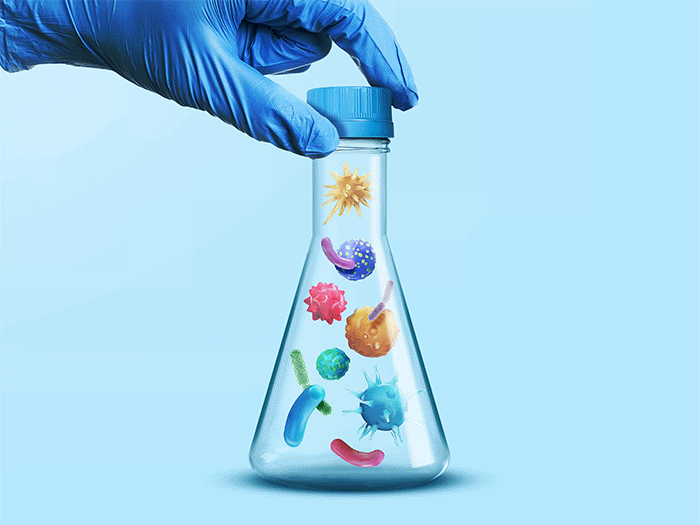
Feature
Gaining the upper hand
W
hen The Rockefeller University was founded in 1901, the average life expectancy in the U.S. was less than 50 years. A century of scientific advancements later, that average lifespan has increased by more than three decades.
This dramatic shift is due in no small part to the enormous progress scientists have made in the fight against infectious diseases. And at every point in the past 125 years, Rockefeller has played a pivotal role in that fight. Our labs discovered the first clinically tested antibiotic (launching the golden age of antibiotics—and a robust line of research at Rockefeller to this day), the first vaccine against deadly yellow fever (winning the first Nobel ever given for a viral vaccine), and the hepatitis C virus, leading to the first, and so far only, cure of a chronic viral disease (and another Nobel Prize). And that names but a few of our accomplishments, as scientists here continue to study infectious disease from a myriad of angles.
They are also confronting a changing landscape—global factors that spread pathogens more quickly, foster the emergence of new diseases, and drive a resurgence of old foes—and are responding with ever more creativity and innovation. Now, some of this work holds the promise to tamp down pandemics, tame the threat of vector-borne diseases, and generate novel methods that translate into extraordinary breakthroughs.
“Fundamental research is transforming our understanding of infectious diseases,” says Charles M. Rice, a Nobel laureate and head of the Stavros Niarchos Foundation Institute for Global Infectious Disease Research at Rockefeller. “We have never had better tools to identify and study disease agents, which will continue to accelerate our ability to prevent and treat infectious disease.”
Taming the threat
Climate change is exacerbating the rapid spread of a class of diseases once on their way to becoming manageable. But years of painstaking research points to a healthier path forward.
The key to better antivirals
Studying COVID may have handed scientists a key to heading off a host of different outbreaks.
Breaking ground often means not just dreaming up new ideas, but also devising the technology to pursue them. Learn more about our how tools we’re developing could advance the study of infectious diseases in untold ways.

